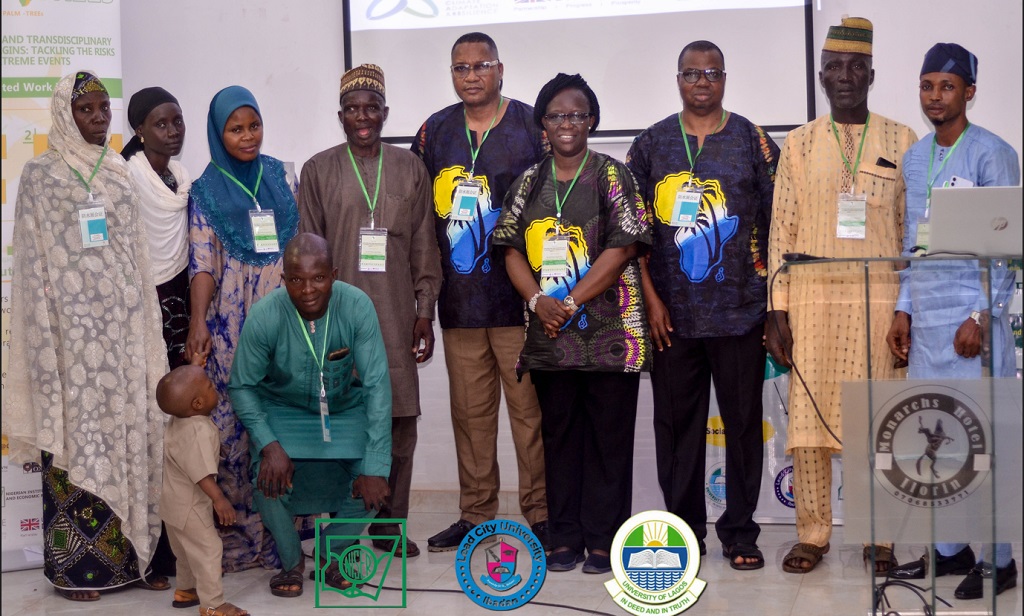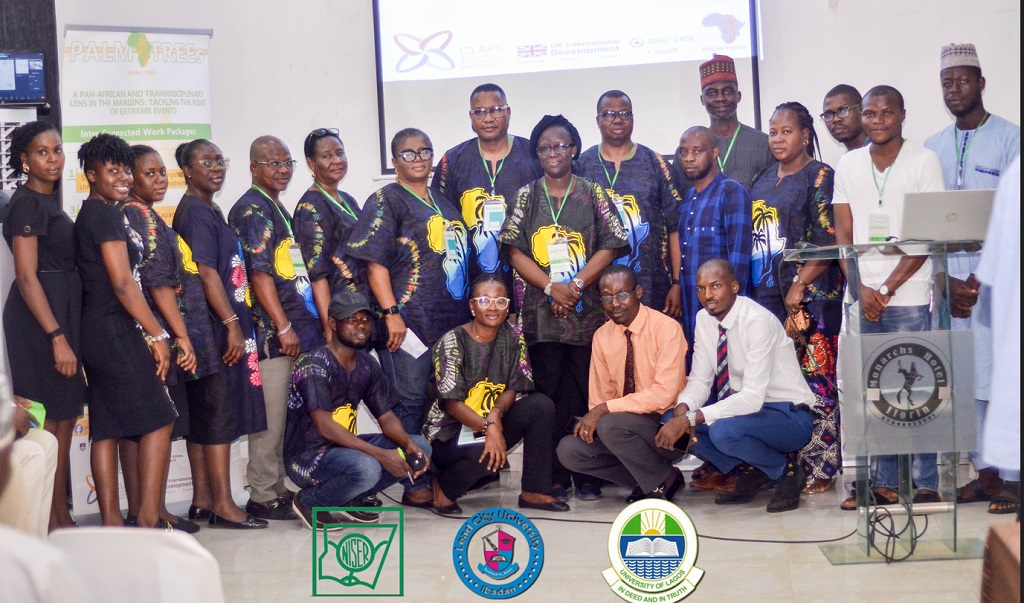
Engaging Stakeholders in the Lagos Case Study
/

On April 23, 2024, the PALM-TREEs project team, comprising Lead City University, the University of Lagos, and the Nigerian Institute of Social and Economic Research (NISER), held a crucial stakeholders’ engagement workshop at the Lagos Chamber of Commerce and Industry. This initiative aims to address the impacts of climate extremes, particularly flooding and heat waves, on vulnerable communities in Lagos.
The workshop brought together 69 participants, including community representatives, government officials, NGOs, and stakeholders from various sectors. The primary objective was to foster collaboration and gather insights on the lived experiences of extreme weather events in Lagos. Participants shared their perspectives on the causes and impacts of flooding and heat waves, along with coping strategies and policy responses.
The discussions highlighted several critical issues. Participants identified factors such as poor urban planning, waste management issues, and climate change as primary contributors to flooding. They noted that many communities suffer from inadequate infrastructure, which exacerbates the effects of extreme weather. The impacts of flooding and heat waves disproportionately affect marginalized groups, including women and low-income households. Participants emphasized the need for inclusive policies that address these vulnerabilities.
While existing climate change policies were acknowledged, participants expressed concerns about their ineffective implementation. A lack of communication between policymakers and communities was identified as a significant barrier to effective climate action.
The successful engagement workshop marks a vital step in the PALM-TREEs project, setting the stage for further research and community involvement. By understanding local experiences and fostering collaboration among stakeholders, the project aims to develop tailored strategies that enhance resilience against climate extremes.
The insights gathered will inform the next phases of the project, including fieldwork and data collection, ultimately contributing to more effective climate adaptation strategies in Lagos.
The workshop brought together 69 participants, including community representatives, government officials, NGOs, and stakeholders from various sectors. The primary objective was to foster collaboration and gather insights on the lived experiences of extreme weather events in Lagos. Participants shared their perspectives on the causes and impacts of flooding and heat waves, along with coping strategies and policy responses.
The discussions highlighted several critical issues. Participants identified factors such as poor urban planning, waste management issues, and climate change as primary contributors to flooding. They noted that many communities suffer from inadequate infrastructure, which exacerbates the effects of extreme weather. The impacts of flooding and heat waves disproportionately affect marginalized groups, including women and low-income households. Participants emphasized the need for inclusive policies that address these vulnerabilities.
While existing climate change policies were acknowledged, participants expressed concerns about their ineffective implementation. A lack of communication between policymakers and communities was identified as a significant barrier to effective climate action.
The successful engagement workshop marks a vital step in the PALM-TREEs project, setting the stage for further research and community involvement. By understanding local experiences and fostering collaboration among stakeholders, the project aims to develop tailored strategies that enhance resilience against climate extremes.
The insights gathered will inform the next phases of the project, including fieldwork and data collection, ultimately contributing to more effective climate adaptation strategies in Lagos.


